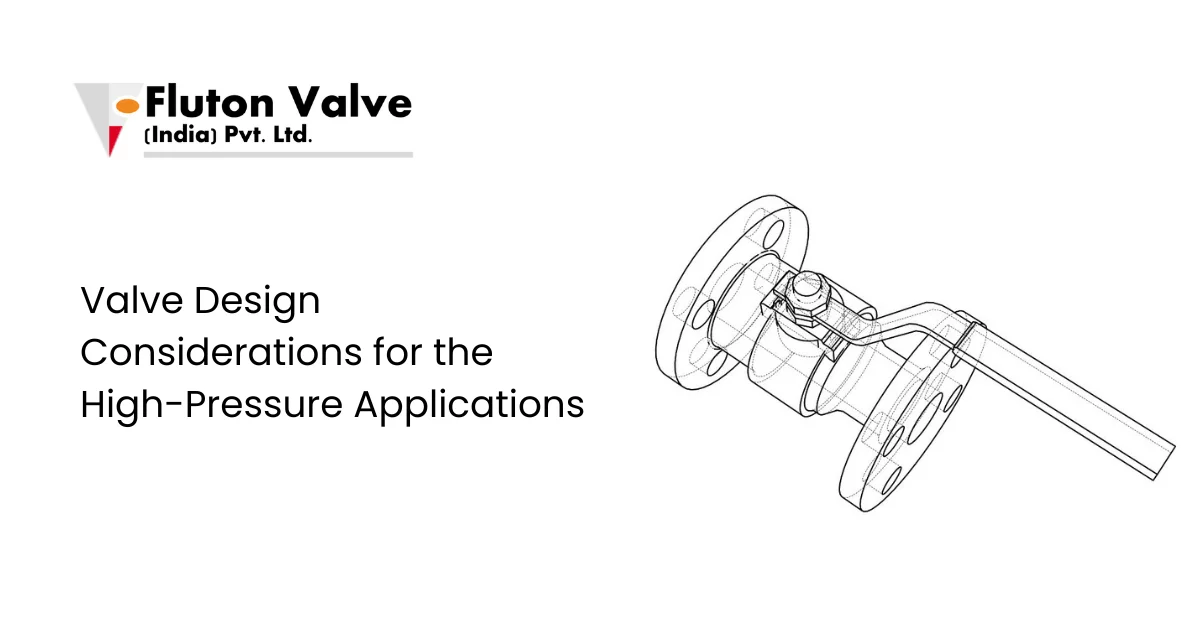High-pressure applications necessitate reliable and effective valve designs in a variety of industries, including oil and gas, power production, chemical processing, and aerospace. Fluid flow, pressure, and direction in these systems are all tightly regulated by valves. Working in high-pressure environments has certain difficulties that need careful thought during the valve design process.
This article by Fluton Valve India examines the important design factors that must be taken into account when creating valves for high-pressure applications, such as stock and fire valves, with a focus on safety, performance, materials, and sealing mechanisms that meet industry standards.
5 Key considerations for designing valves for high-pressure applications
Safety
Developing valves for high-pressure applications demands putting safety first in order to prevent catastrophic failures and assure the protection of people and equipment. For instance, European valve manufacturers frequently incorporate features like pressure relief valves, fail-safe mechanisms, and enough structural integrity.
They also follow industry norms and regulations. According to the majority of valve providers, robust design techniques, including as stress analysis, fatigue testing, and quality control measures, are essential to reduce potential dangers.
Performance and Flow Characteristics:
For high-pressure systems to preserve process integrity and achieve peak performance, efficient flow management is crucial. Reduced pressure drops, flow restrictions, and low turbulence are desirable in valve designs.
To achieve minimal energy loss, and provide high flow capacity along with precise flow control across the whole operating range, consideration must be given to variables including valve type, seat design, and trim configuration.
Material Choice:
For high-pressure valve designs to withstand the severe circumstances they will experience, it is essential to choose the right materials. According to an expert valve stockist in the sector, materials must have superior mechanical strength, be resistant to corrosion, and be compatible with the process fluids and operating temperatures.
High-performance alloys, alloy steels, titanium, and stainless steel are often used materials in high-pressure valves. The materials selected should operate well under high-pressure settings and meet or exceed industry standards.
Mechanisms for sealing
In high-pressure applications, effective sealing is essential to preventing leaks and maintaining system integrity. Depending on the required pressure and temperature, different sealing mechanisms, such as metal-to-metal seals, soft seals, and elastomeric seals, are used.
The design should provide resilience against wear, erosion, and chemical assault, guarantee dependable sealing at large pressure differentials, and allow for thermal expansion and contraction. In addition to limiting losses and fugitive emissions, proper sealing helps to comply with environmental standards.
Actuation
High-pressure valves frequently require strong actuation systems that can resist demanding circumstances. Actuation and operational considerations. Based on the type of valve, required torque/force, response time, and dependability, actuators should be chosen.
To guarantee consistent and accurate control of the valve, special consideration must be paid to the actuator’s pressure rating, mechanical integrity, and fail-safe features. To reduce downtime and maintain effective operation, operational factors like valve maintenance and accessibility for repairs should also be taken into account during design.
[ Don’t forget to check – Different Types Of Ball Valve And Their Pros And Cons ]
Conclusion:
When designing valves for high-pressure applications, it’s essential to have a thorough understanding of the special difficulties and demands these settings present. As a top distributor of valves in India, Fulton Valve India always makes sure that important design considerations like safety, performance, material choice, sealing mechanisms, and actuation are given careful consideration.
By taking these factors into account, our team of experts has distinguished itself as one of the top manufacturers of valves that create dependable, effective, and long-lasting solutions that satisfy the demanding requirements of high-pressure applications and guarantee the safe and effective operation of industrial systems.

